The art collection was started by Constitutional Court Justice Albie Sachs, a former political and cultural activist, and Justice Yvonne Mokgoro, its guiding principles to showcase works that bring together art and justice, and reinforce the work of the court in protecting the rights of South Africans.
Since the opening of the permanent court building in 2004 (the building had its official opening on Human Rights Day, March 21) the collection of works has grown to around 600. Most of the pieces, apart of course from the artworks such as furnishings and carpets that are functionally part of the building's original design, have been donated. All donation proposals are subject to an assessment by the acquisitions committee (upon which the justices have representation) to ensure that any proposed artwork fits the founding values of the collection. An utterly democratic method of collecting.
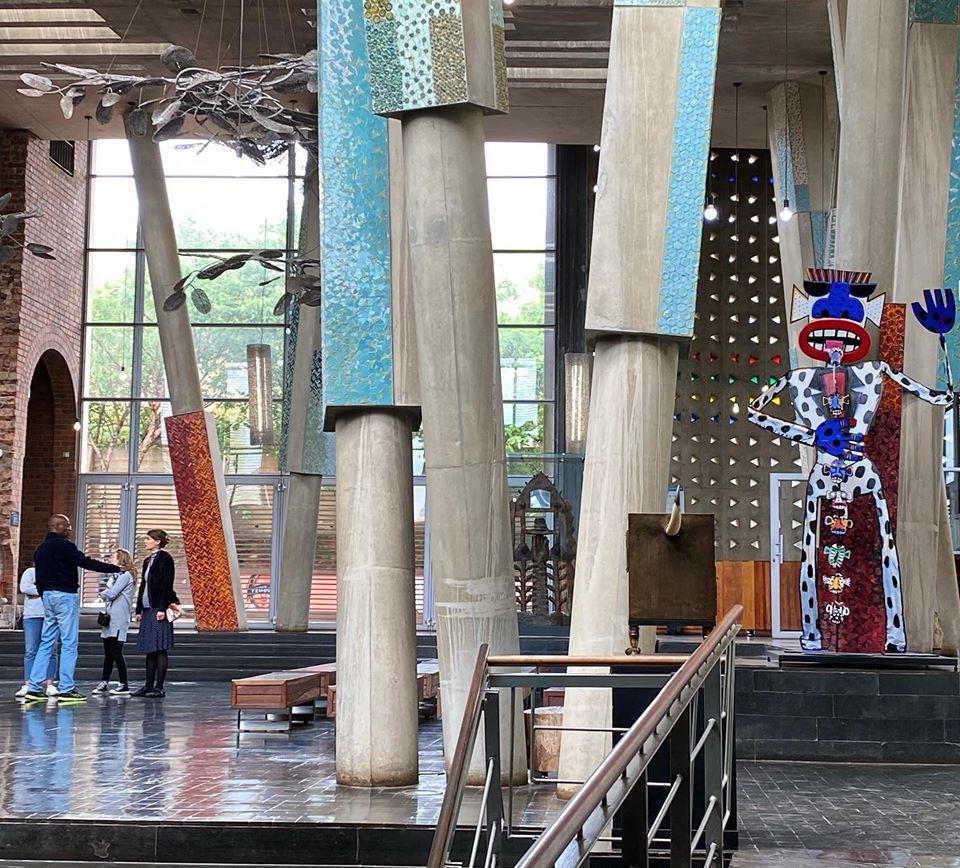
The collection is awe-inspiring for its breadth of media and its diversity within each, and its confrontation with issues related to justice. Ruth Bader-Ginsburg, our hero and Associate Justice of the Supreme Court of the United States had this to say: “It is one of the most vibrant collections I have seen in any courthouse in the world.”
From large-scale sculpture and installation pieces to paintings and photography, works on paper and fabric, the Court's collection also includes furnishings and design items that were commissioned at the founding, such as the Court carpets and the woven banners installed to improve the acoustic design of the Court. One of the most impressive features of the court chamber is the 6m by 2.5m intricately beaded and embroidered South African flag that was hand-stitched over a period of six months by a group of women from KwaZulu-Natal. On completion of the work their names were also embroidered onto the flag in recognition of indigenous craftsmanship as a form of art.
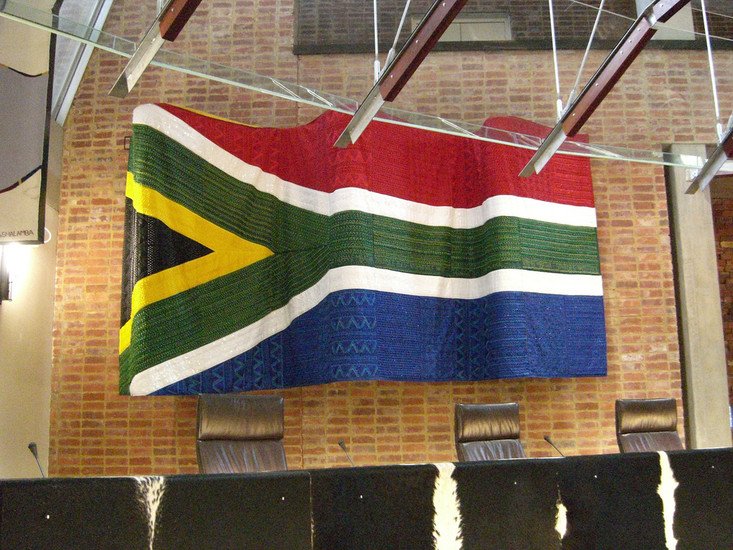
The collection is rotated every six months in the public areas and annually in the private areas of the Court which include the judge's chambers, meeting rooms and the astonishingly beautiful law library said to carry the largest collection of Human Rights articles and books in the Southern Hemisphere.
The building in which the Constitutional Court is housed is an unrivaled architectural landmark in Johannesburg. From the huge imposing hand-carved wooden doors at the entrance, to the light-filled reception area with its concrete columns with their mosaic design and flower sculptures by Walter Oltmann (created to recall the idea of justice being dispensed under a tree in an African traditional setting) you'll soon become aware of how each detail was so carefully considered. The art and justice tour is as much a tour of the integrity of the space as it is of the art collection.
The collection has many standout pieces, among them Paul Stopforth's tribute to Steve Biko, a collection of "Bang Bang Club" war photographer Greg Marinovich's portfolio of photographs titled The Dead Zone taken at the height of the violent struggle in the 1990s before the birth of South Africa's democracy, and a triptych by Marlene Dumas. There are far too many to mention.
The Constitutional Court has a dedicated art department as much concerned with curating the collection, as with its conservation. The Court cannot accept money from individuals or companies so the tour is free of charge, and even the conservation work is funded by anonymous donations and grants from international donors. The Constitutional Court Trust is the custodian of the Constitutional Court Art Collection (CCAC).
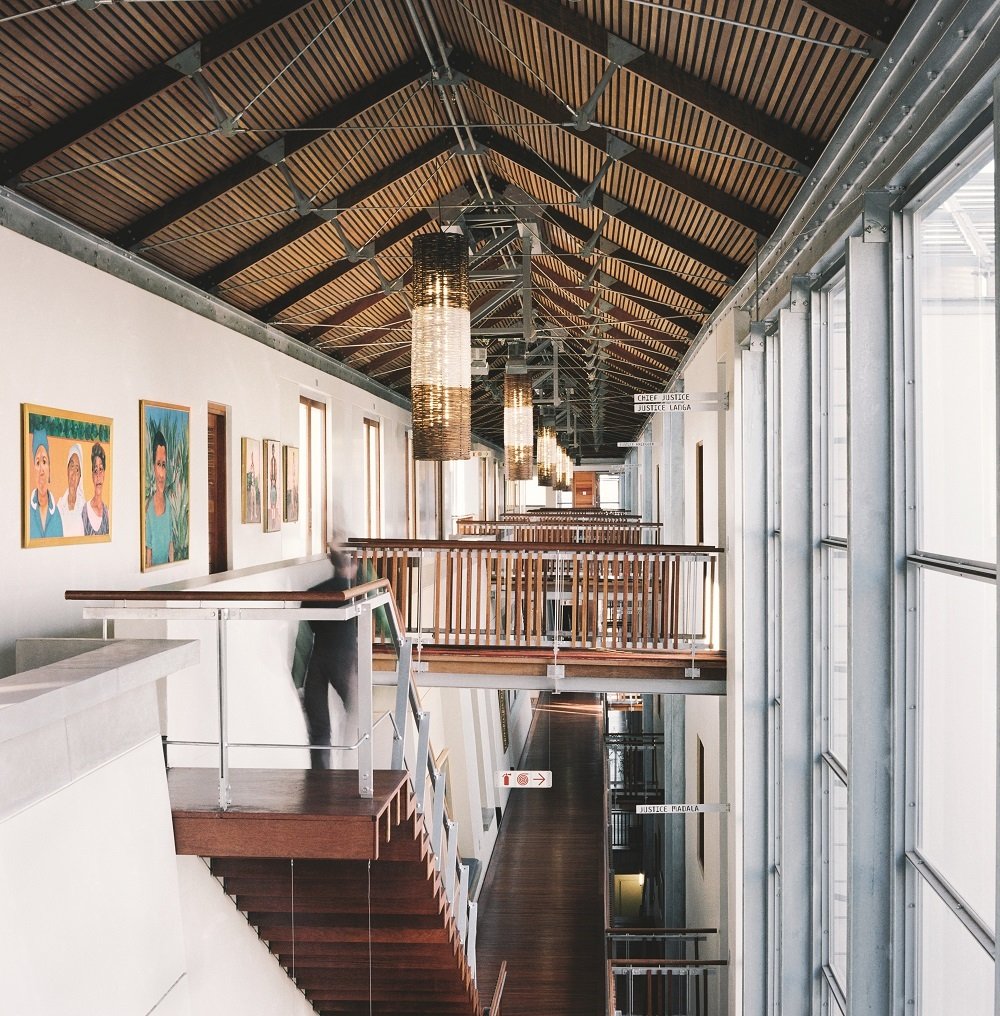
How to book for the art and justice tour of the Constitutional Court
Bookings are essential for the bi-monthly tour, which takes place from 9:30–11:05 on Saturday mornings. The tour commences at the main entrance of the Constitutional Court, Constitution Hill, Braamfontein. Underground parking is available at the Constitution Hill precinct at a cost of R30 per vehicle. The Court is generally wheelchair-friendly, although persons with disabilities are kindly requested to reach out beforehand. For bookings email ccac@concourttrust.org.za or see ccac.concourttrust.org.za/tours for more information.South Africa's Constitutional Court is located at the Constitution Hill complex in Braamfontein.


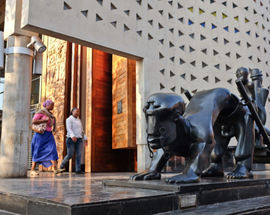
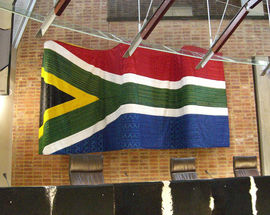
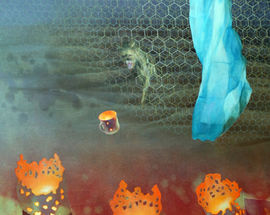
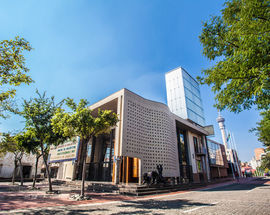
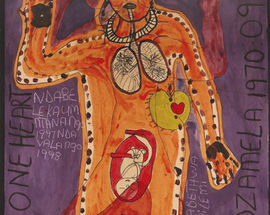
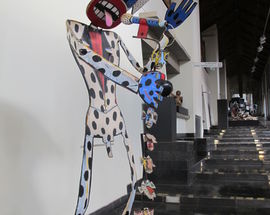


Comments